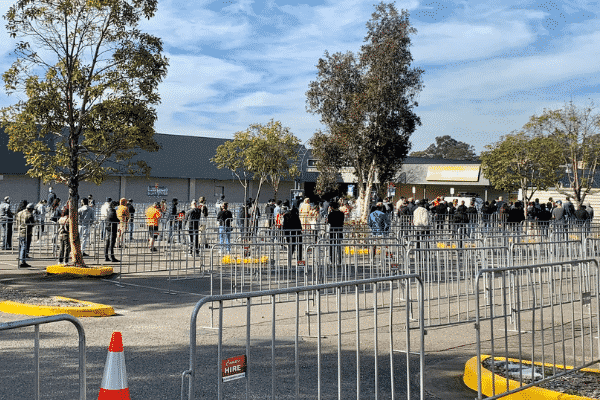The ongoing pandemic has laid bare that our society is riddled with social inequality, classism and racism.
Over and beyond the health and mental health effects, what has emerged is how divided we are as a society, and the urgent need to continue our conversations in the different community groups as we come out of lockdowns.
Both Melbourne and Sydney have endured harsh lockdowns in recent months. Melbourne has the unenviable record of becoming the city with the highest number of lockdown days globally. Sydney is only now coming out of almost three months of lockdown.
The reaction of the community has been starkly different this time round as compared to the initial days of COVID-19 in March-April last year. At that time, the chatter was about the baking of sourdough bread, the novelty of working from home, and Zoom martinis shared with friends after hours. This time round, it’s frustration and despondency. There has been more sniping at those in politics – be it Federal politicians whose delay in procuring vaccines put the country three months behind in supply to the states, or premiers who spent time picking at each other and pitting state against state for petty political reasons.
The lockdown of the 10 LGAs in NSW split the community – those in the lockdown areas, largely southwestern and western Sydney residents, often hailing from non-English speaking countries, were kept in line with helicopters and police patrols, while those in the affluent eastern suburbs showed off optics of beach life and outdoor activity despite being locked down.
It has been a society divided along latte and shisha lines (for the uninitiated, shisha is a form of smoking popular in the Middle Eastern communities) with starkly different lifestyles in these communities.
READ ALSO: Pissing in the public pool
On the one side of the divide, diaries have to be matched before meet-ups; on the other, casual drop-ins are considered normal. On the one side, decisions are made based on professional advice; on the other, family inputs over the dinner table often seal the deal.
From a COVID messaging point of view, the conversations to the two groups urging people towards health measures, simply had to be different.
Early in the piece, politicians and medical experts realised that to break through any vaccine hesitancy, the message had to be delivered by trusted voices. These trusted voices were community leaders, faith leaders, and those with high visibility. For the first time, these leaders were given a seat at the table, their counsel sought, and their ideas implemented.
It is little wonder then that some of the most affected and marginalised communities are now among the most vaccinated.
Post lockdown and in the future, it will be interesting to note whether or not the powers-that-be continue to harness the strength of this trusted source of community leadership.
After all, a community is a group of people who share a common story which is important to them – and these could be other bigger issues such as environment, respect for women, taking care of our elders and the disadvantaged
READ ALSO: Australia: The White Man of Asia?
Link up with us!
Indian Link News website: Save our website as a bookmark
Indian Link E-Newsletter: Subscribe to our weekly e-newsletter
Indian Link Newspaper: Click here to read our e-paper
Indian Link app: Download our app from Apple’s App Store or Google Play and subscribe to the alerts
Facebook: facebook.com/IndianLinkAustralia
Twitter: @indian_link
Instagram: @indianlink
LinkedIn: linkedin.com/IndianLinkMediaGroup




